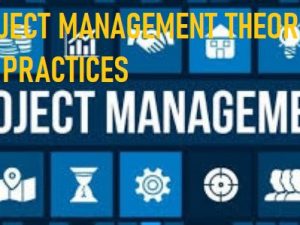| Table of Contents |
1.0 Introduction
2.0 Literature review
2.1 Definition of project and project management
2.2 Key areas of project management
2.3 Project management methodologies
2.4 Risk management process
2.5 Reasons for project failures
3.0 Analysis
3.1 JKIT approach to project management
3.1.1 JKIT project methodology
3.1.2 Virtual project team
3.2 Risk management process of JKIT
3.2.1 Identify risks
3.2.2 Assess risks
3.2.3 Evaluate risks
3.2.4 Implementation
3.2.5 Risk monitor
4.0 Conclusion
5.0 Recommendations
References
|
| Preview |
1.0 Introduction
This is a study which extensively discuss project management process of John Keells IT (JKIT). JKIT is a subsidiary of John Keells Holding PLC which is the largest conglomerate company in Sri Lanka. JKIT is the boutique IT consultancy and professional services organization. Vision of JKIT is that to simplify and transform organizations digitally to be relevant in the data driven experience economy (JKIT, 2021). Key focus areas of JKIT is that providing cloud solutions and transformation services, providing core solutions and transformation services, smart solutions and transformation and software solutions and transformation services (JKIT, 2021). JKIT has strategic partnership with famous global brands such as SAP, Microsoft, Ui path and Deloitte. Strategy of JKIT guides clients’ digital transformation journey by assessing digital maturity and mapping clients’ journey with involvement of tools and techniques such as blue ocean strategy, design thinking and strategy canvas (JKIT, 2021). This leads to map value stack to assist clients to realize value.
JKIT as an IT firm handles every job as a project. There is a project management office (PMO) to oversee the every projects. PMO leads to ensure maintain higher standard in every projects handled. Further, JKIT follows agile methodology to project management. JKIT also undertake virtual projects to increase more flexibility. As a subsidiary of John Keells Holdings, company’s risk management process is strengthen by Group risk management process.
This study consists with literature review, analysis, conclusion and recommendation. In literature review, main activities of project management and how good project management impact on risk management are discussed. Further, reasons for project failure are also discussed in literature review. In analysis, project management process and risk management process of JKIT are comprehensively analyzed. In conclusion and recommendation, recommendations will be made to improve risk management and project management processes of JKIT.
2.0 Literature review
2.1 Definition of project and project management
A project can be defined as a certain, limited activity that delivers a perceptible and measurable result under certain given requirements (Kohil and Chitkara, 2008). A Project can also be defined as a unique, temporary and progressive effort to make an intangible or tangible result (Maylor, 2006). Generally, there is a series of interrelated tasks which need to complete within fixed time period under limitations of cost, quality etc. Time, cost and quality are considered as key elements of a project. There are key characteristics of project; temporary, unique deliverable(s) and progressive elaboration. Temporary means that project has a specific start and specific end (PRINCE2, 2017). Unique deliverables means that every project plans often to produce a product or a service different for another project (PRINCE2, 2017). Progressive elaboration means that that project always aims to make positive change to the process (PRINCE2, 2017).
According to Association of Project Management (2020), project management can be defined as the application of methods, processes, knowledge, skills and experience to attain defined objectives of the project based on the project acceptance criteria within decided parameters. Project management includes key components such as defining project requirements, specifying quality, estimating time and resources, developing project management plan, motivating project team, managing risk, measures the progress etc (APM, 2012). The project management disciplines includes project management methodologies, project management processes, project management phases, project management roles and project management tools.
Project management is important in many different ways. It ensure that deliver a right outcome as planned and strategically aligned. Project management brings direction and leadership to the project. Further, it ensures to have clear focus and plan to execute on goals. It also leads to meet quality requirements consistently (Gray, 2011). Project management ensure that possible risks are properly managed and mitigated to conduct project smoothly. It also leads to allocate right people to do right things at the right time (Gray, 2011). There are many other importance of project management too.
|





